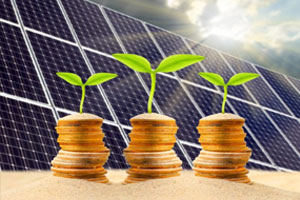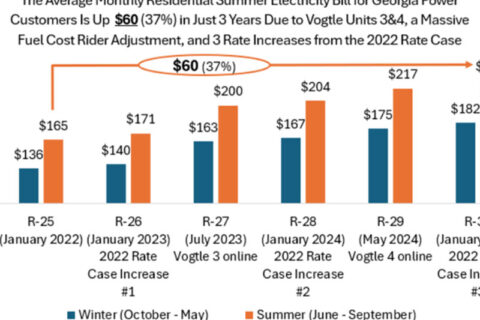Spotlight on Solar Energy
Solar energy is a powerful source of energy that can be used to generate electricity, heat your home and your hot water, and even cool your home. More energy from the sun falls on the earth in one hour than is used by everyone on the planet in a year.
Businesses use solar power to diversify their energy sources, improve efficiency, and reduce overhead. Power companies have set up large solar installations to produce electricity, and it’s likely that some of your electric power currently comes from solar energy.
Electricity
Photovoltaics (PV) gets its name from the process of converting light to electricity. This is called the photovoltaic effect. This was first developed in the 1950s when Bell Laboratories developed a working solar cell made from silicon that generated an electric current when exposed to light. Soon after, solar cells were being used to power satellites and smaller items, like the calculator you may have on your desk. Thanks to improvements in technology and manufacturing methods, electricity from solar cells has become more cost-competitive in many parts of the world when compared to other energy sources.
Energy storage
Using solar power during times when the sun isn’t shining requires storage devices. In the case of electricity, batteries are charged by the solar panels, and then that power is distributed later as needed.
For heating or cooling applications, thermal mass is the storage device. Thermal mass usually consists of the materials used to construct a building.
Heating
Solar heating systems capture sunlight via thermal mass, then they release that heat after the sun has gone down. This process usually involves south-facing windows of a building to collect and distribute the heat as needed.
Cooling
Passive cooling uses shading, thermal mass, and natural ventilation to reduce unwanted daytime heat and store cool night air in order to moderate indoor temperatures.
Water heating
Solar water heating systems use solar panels to heat the water by circulating water through collector panels, and into a storage tank.
The Future of Solar Power
A popular song in the 1980s was titled, “The Future’s So Bright, I Have to Wear Shades”. Indeed, the future of solar energy is very bright.
At Better Tomorrow Solar, we believe in the overwhelming benefits of using a solar system installation for your home or business, as solar power is a renewable energy resource, that can reduce your energy bills, improve your home’s energy efficiency, and reduce your carbon footprint.
Because we believe in our vision and mission so intently, it is our goal to make solar panel installation a reality for as many communities as possible throughout Atlanta GA, and the surrounding metro area. Because we want to make residential and commercial solar installation possible for our communities, we offer expert service and game-changing financing options for solar installations.
For more information about our products or services, visit our website, or contact us at (980) 317-0145, or in Georgia at (678) 532-1000.









